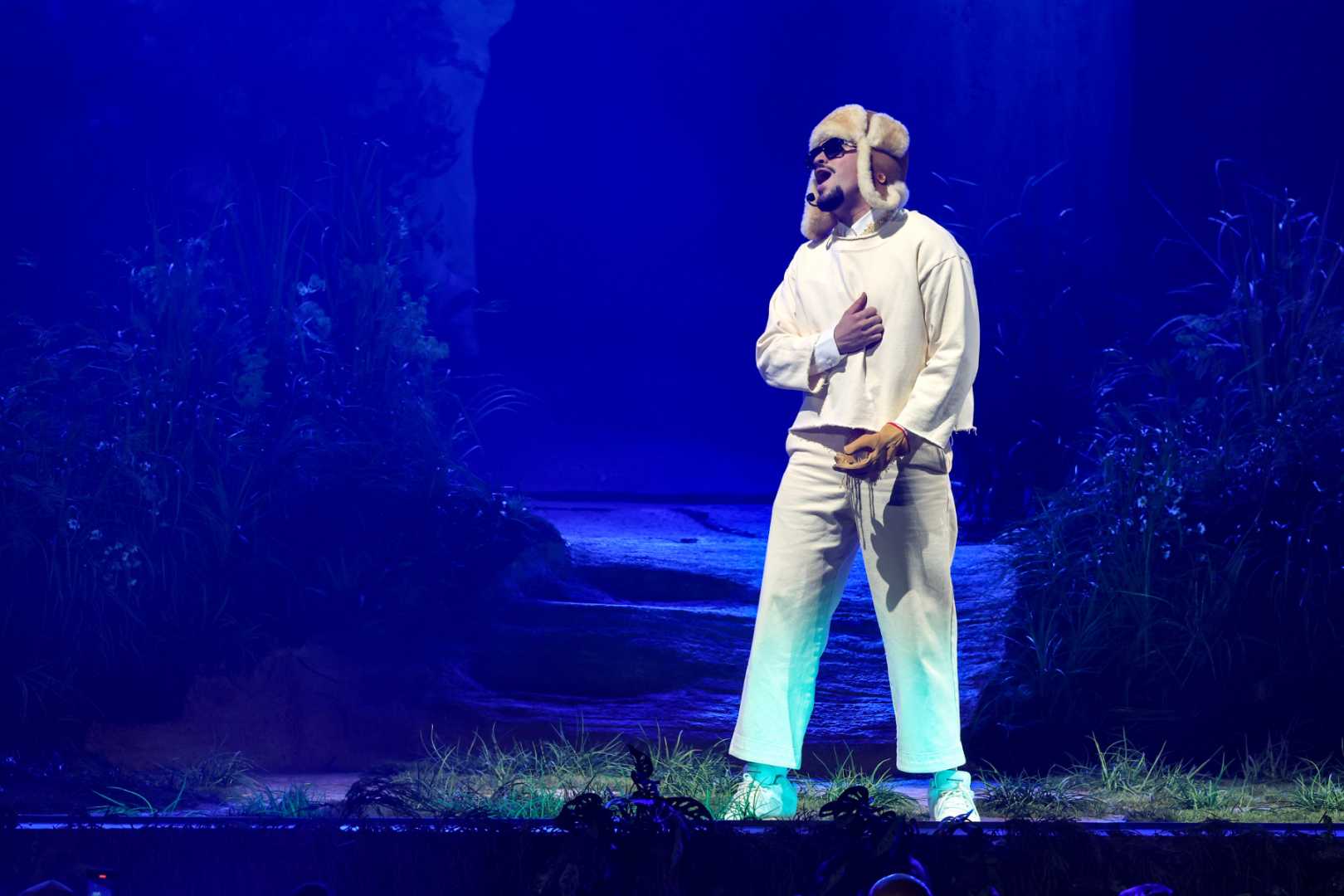Entertainment
Bad Bunny to Headline Super Bowl Halftime Show, Sparking Controversy

Miami, FL — Latin superstar Bad Bunny will headline the Super Bowl halftime show in February 2026, making history as the first Latin male artist to do so. The announcement has ignited discussions about political and cultural implications within the U.S., especially amidst ongoing divisive debates over immigration and representation.
Bad Bunny, whose birth name is Benito Antonio Martínez Ocasio, has emerged as a significant figure in the music industry, boasting three Grammy wins and 12 nominations. He is also recognized as the most-streamed artist worldwide. Critics, however, suggest that the NFL’s choice reflects deeper political motivations, pointing to Bad Bunny’s vocal opposition to former President Donald Trump‘s immigration policies and his endorsement of Kamala Harris.
Right-wing commentator Robby Starbuck criticized the selection, claiming it would alienate football fans who may feel divided over the choice of an artist who primarily sings in Spanish. Critics on conservative platforms expressed concern that his performance will push a progressive agenda.
In contrast, supporters argue that this decision could signify the NFL’s commitment to diversity. Jon Barker, NFL’s senior vice president of global event production, stated, “Bad Bunny represents the global energy and cultural vibrancy that define today’s music scene,” highlighting his ability to connect with diverse audiences.
Bad Bunny himself responded to the news with gratitude, emphasizing the cultural significance of his performance. He said, “What I’m feeling goes beyond myself. It’s for those who came before me and ran countless yards so I could come in and score a touchdown.” His quote resonated with many fans who see his participation as a celebration of Puerto Rican pride.
The NFL has increasingly focused on expanding its international presence, with several games played outside the U.S. this season. By choosing Bad Bunny, the league not only capitalizes on his massive popularity but also aligns with its goals of fostering inclusivity. As the 2026 Super Bowl approaches, discussions about representation and musical diversity are likely to continue, reflecting broader social dialogues within America.












